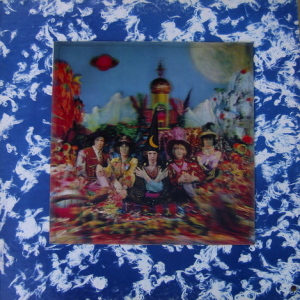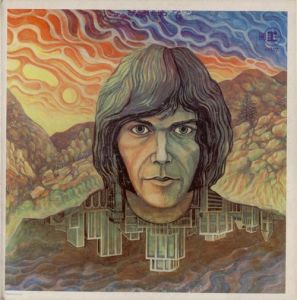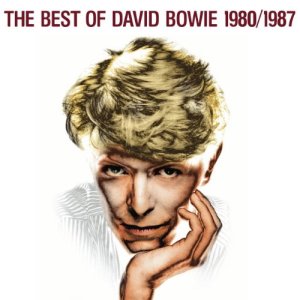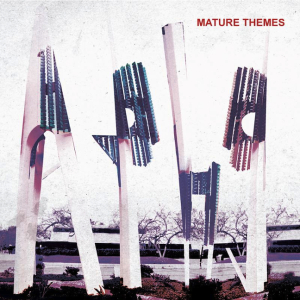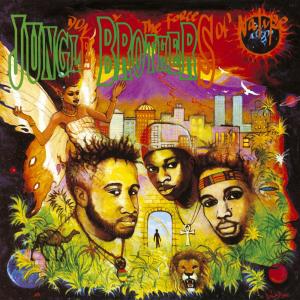Link to an article by Fernando Vegas:
The Rolling Stones – Their Satanic Majesties Request
The Rolling Stones – Their Satanic Majesties Request Decca TXS 103 (1967)
The Rolling Stones made one out-and-out psychedelic album. It was Satanic Majesties. The record is a non-stop creative journey. While perhaps the most idealistic Stones album, Satanic Majesties also has a gritty, cynical realism just under the surface. Somehow this lends power to the dreamy psychedelia. It makes the music more legitimate. The uplifting qualities aren’t escapist.
“She’s A Rainbow” is such a wonderful song. It opens with an electronic and found sound segment before leading into sweet piano melody. John Paul Jones (future Led Zeppelin) provided string arrangements. While there is a lot of effort to organize the music, this is still more instinctual than perfectionist. It feels so natural. Even the eeriness seems to belong where it is. The array of instruments used, from horns to a xylophone, make songs like “Sing This All Together” vibrant. Each little sound contributes something unique.
Two more of the very best songs are “2000 Man” and “2000 Light Years from Home.” The disillusionment and desire of “2000 Man” make quite a potion. The acoustic guitar seems to merge with the sitar. I sometimes think it is a song about a homosexual in a heterosexual marriage, but I see that as only one of many interpretations. It also is about modern alienation and the desire to cure intractable loneliness. The spooky “2000 Light Years from Home” has a Moog synthesizer slinking along a rather hip rhythm.
“Sing This All Together (See What Happens)” tends to get a critical thrashing, but this is unfair. This post-modern sound collage went down before Captain Beefheart, Funkadelic, Miles Davis or just about anyone else in rock, pop or jazz dared actually try such a thing–though The Mothers of Invention did some similar things around the same time.
“Citadel” is a rocking song about New York City. Jagger throws in some references to some locals including Candy Darling (also the subject of The Velvet Underground’s “Candy Says”).
“Gomper” and “In Another Land” tend to wander a bit, though they still are for the most part good songs if taken on their own terms.
People tend to dismiss this album as a failed attempt to match The Beatles’ Sergeant Pepper’s Lonely Hearts Club Band. I have never been convinced Sergeant Pepper’s is so great an album, even if it has a few great songs. But more to the point, this album is more like Pink Floyd‘s The Piper at the Gates of Dawn than Sergeant Pepper’s anyway. In any event, Satanic Majesties is a wildly unique, modern and enjoyable album–not just among Stones albums. I start listening to it to try to entertain myself but then I always go further and open my mind to new ways of hearing and thinking.
Neil Young – Neil Young
Neil Young – Neil Young Reprise RS 6317 (1968)
Neil Young’s debut album might be his least memorable. It isn’t his worst, exactly. But it is an album that lacks the indomitable personality that made his later albums so great. This sounds like a typical late 1960s album from L.A. In fact, there are a lot of similarities to Harry Nilsson of the era. There are tunes that have a heavy psychedelic folk sound, a psychedelic rock sound, and a country rock sound. Rather than have Young sound like himself, he’s sounding like what was popular at the time. This is the same problem with most of the first part of Willie Nelson‘s career. There isn’t much of an attempt to register dissatisfaction here, which is really Young’s strength. Anyway, Young accomplished a complete turnaround with his follow-up with Crazy Horse, the excellent Everybody Knows This is Nowhere (1969).
David Bowie – The Best of David Bowie 1980/1987
David Bowie – The Best of David Bowie 1980/1987 EMI 09463-86587-2-6 (2007)
The Eighties were when Bowie took a turn for the worse. He was still popular, but quality wasn’t always there. That said, there is actually some good stuff here, but it’s not enough to fill out the disc. I would rather have a “Best of 1980/2010.” [Note: this collection was originally part of The Platinum Collection]
Henry Giroux – Young People Have Been Marginalized
Link to an interview with Henry Giroux:
“Young People Have Been Marginalized and They Will Have to Challenge the System that Produces It”
Ariel Pink’s Haunted Graffiti – Mature Themes
Ariel Pink’s Haunted Graffiti – Mature Themes 4AD CAD3230CD (2012)
You could say that Ariel Pink’s music is based on some form of corollary to historian Marcus Lee Hansen‘s so-called “Hansen’s Law” about immigrant assimilation (it’s really just a theory): “What the son wishes to forget the grandson wishes to remember.” That’s because he dredges up material from the 1960s through the 1980s to re-purpose for his own music. But there is more to his music than just that. He constantly juxtaposes high and low culture. This guy has studied pop culture. On the opener, “Kinski Assassin,” he intones, “who sunk my battleship / I sunk my battleship.” This recalls a TV commercial from the 1980s for the game “Battleship” in which a kid cries out, “You sunk my battleship!” But elsewhere in the song Pink is singing, “We’ll always have Paris,” like a line from Casablanca (1942). Fitting these together, with lines like “Blonde seizure bombshells and the blowjobs of death / Bring on the bog and she-males hopped up on meth” refuse to let this come to any sort of equilibrium. At times it almost does. “Only in My Dreams” seems almost like The Byrds. Then “Farewell American Primitive” references the music collector obsession with “American Primitive” guitarist John Fahey. But Pink sings, “fuck it, I’m high…” He also drops in lines like “Native American Immigrant” and “If that isn’t me, North Korea is me.” In all this, Pink refuses to let his music settle into any sort of comfort zone. The juxtapositions of the incompatible just keep coming. This is basically the same approach that the radical elements of the French nouvelle vague movement in cinema pursued half a century earlier. After all, isn’t the aesthetic that Ariel Pink deploys here almost the same as what Godard did on Filme socialisme (2010), with its oversaturated digital video clips, sudden jumps to different characters, and offhand comments on philosophy, art, and work?
And let’s clear something up. The term “hypnagogic pop” has been thrown around a lot to describe music like Ariel Pink’s. But the term is a bit misleading when applied here. The philosopher Hegel wrote about a concept that became known as “beautiful soul syndrome”, in reference to Goethe’s chapter “Confessions of a Beautiful Soul” in Wilhelm Meisters Lehrjahr [Wilhelm Meister’s Apprenticeship]. Hegel took up Goethe’s story to expand upon it and explain the vacuity in the forgiveness of evil by the “beautiful soul”. As a J.N. Findlay wrote about Hegel’s Phänomenologie des Geistes [Phenomeology of Spirit]:
“It [the “beautiful soul”] then tries to cultivate goodness in solitary isolation from the actual social whole. *** The very rejection of objectivity is the only achievement of the ‘beautiful soul’, and is held to be the greatest triumph of its self-conscious freedom. It flees from concrete moral action, and luxuriates in a state of self-hypnotized inactivity.”
In this context, the jarring discontinuities of Pink’s music become the key to its success–the reason it avoids “beautiful soul syndrome”. There is always the threat of a lulled hypnosis, but that is always and consistently disrupted by the strange juxtapositions he invokes, which almost everywhere in the real world are held part. Mature Themes is maybe less jarring than much of Pink’s prior work. The violent discontinuities are still there, though, more subtly. Because they force the listener to confront and reevaluate the elements, they are what keep the album from becoming mere inactive nostalgia for subjective experience.
Jungle Brothers – Done By the Forces of Nature
Jungle Brothers – Done By the Forces of Nature Warner Bros. 9 26072-1 (1989)
By the late 1980s, hip-hop was evolving. It wasn’t just about sneakers, nursery rhymes, eating boogers and dancing anymore. But while plenty of artists of the newer generation went for documenting the grimmest aspects of life on the streets or being part of the underclass, a group of artists calling themselves the Native Tongues tried something different. The Native Tongues groups focused more on the positive aspects of what they would want things to be like. Part of that was about respect for the historical contributions of Africans to world civilization.
Unlike most multi-MC groups, the Jungle Brothers didn’t have one MC who overshadowed the others. Everybody shares duties on the mic, and there is never a letdown when another MC takes over from the last. In fact, that is one of the group’s real charms. Part of the reason Done By the Forces of Nature works is that the MCs tend to all use the same vocal rhythm, rather than their own idiosyncratic ones. It is a very staccato, percussive delivery, free of any of the more melodic kind of rapping that emerged a decade or so later. This rhythmic emphasis is a shared approach. So when one MC passes the mic to the next, there is a kind of stylistic commonality that tells the audience that these guys are trying to get at some big, heavy stuff, not trying to cut each other, or anybody else. This is a style that perfectly fits the thematic sentiments of the songs.
The lyrics hint at a new view of masculinity, at least within hip-hop. There is caution and skepticism. This isn’t all bravura (though there is plenty of that). In way, their sexist posturing kind of gives way to brief admissions that all that is just desperate attempts at something they can’t really grasp, leaving open the possibility to maybe taking a new and different look at the world. It would be too much to call these guys feminists, but the ways their songs veer off course from the usual testaments to alpha male status open the door to other things. Most often those other things are testaments to afro-consciousness. But the crazy thing is that if the album had nothing but testaments to afro-consciousness, the people who probably need to hear those the most might not listen, and even those that do maybe would have only focused on everything else.
A clear influence on the Jungle Brothers was James Brown. A really funky beat is absolutely constant. It is a big part of what makes Done By the Forces of Nature so damn infectious from start to finish. Their debut record used a “house music” producer from Chicago, and that gave it a tight, tense, nimble sound. That goes out the window here. A little bit of that is retained, perhaps, keeping this music dance friendly. But the beats meld with the lyrics a lot more here. Take the opener, “Beyond This World,” there is a lot more wordless shouts of “yeah” or “uh” for rhythmic effect. These guys seem much more comfortable, less beholden to the structure of the beats. They make this music their own. These seem like raps over music these guys had lived with. That suits their artistic outlook, giving the album a friendly, down-home brightness that rewards the optimism of the lyrics. It helps that this album was recorded in the “golden age” of hip-hop, before the crackdown on sampling that began in 1991 with a lawsuit against Biz Markie that made choice samples unaffordable to many acts.
Hip-hop was still a semi-unproven commercial prospect back in the late 1980s. It was a kind of specialty genre, with its adherents who probably were insiders to hip-hop culture. Done By the Forces of Nature comes at a key transition, when the forms of early hip-hop were fully refined, but when the scope and direction for the next generation was only being sketched out. The positive, open-minded approach that The Jungle Brothers and other Native Tongues acts put forward didn’t quite catch on like the ghetto tourism aspects of “gangsta” rap. Still, this album hasn’t aged much in two and a half decades. It still has good beats, true to the funkiness of James Brown, though the beats are part and parcel of the overarching sense that these guys were making the kind of music that they like. By extension, they suggest that maybe they could also do what they like when it came to the subjects they rapped about. This is the really subversive edge. The journalistic chronicles of gangsta rap held everything in stasis. They told things as they were. The Jungle Brothers suggested what things might become. Their visions might be a little inept an inarticulate in places. Stumbling in an interesting direction proved a bigger achievement than just being the black news (journalism) network. This was black philosophy: asking better questions.
Utah Police Responsible for Majority of Killings in the State
Link to an article:
“Utah Police Responsible for Majority of Killings in the State”
Niamh Hayes & Richard Seymour – Philanthropic Poverty
Link to an article by Niamh Hayes & Richard Seymour:
Reprieve – US Drone Strikes Kill 28 Unknown People for Every Intended Target
Link to a press release on a report by the group Reprieve:
“US Drone Strikes Kill 28 Unknown People for Every Intended Target”

